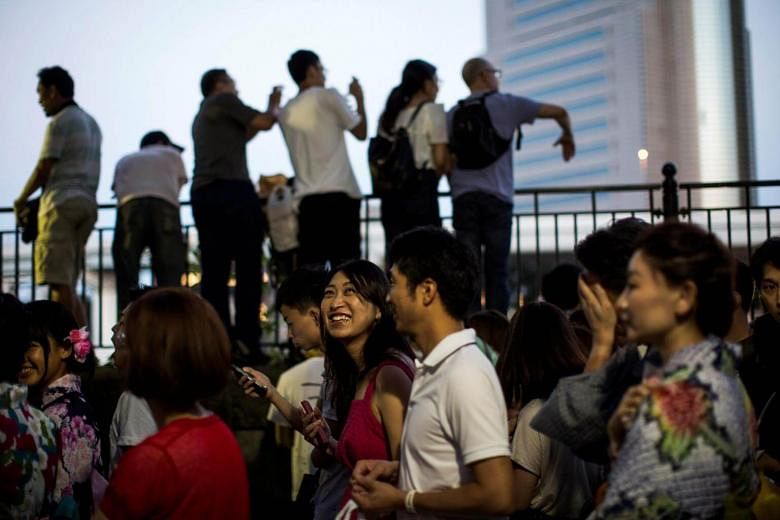TOKYO - Young Japanese are more optimistic than their elders about their nation's politics and economic prospects, a new study by a US-based think-tank has found.
The Pew Research Centre report, released on Tuesday (Oct 17) ahead of Sunday's (Oct 22) general election and amid a slew of positive economic data, also noted that Japanese are overall more positive about their nation's future compared to last year.
Only 32 per cent of respondents aged 18 to 29 are displeased with the state of Japanese democracy compared to about one in two of those aged 30 and older, it added.
The findings effectively confirm local media surveys showing that, contrary to generalisations elsewhere about young voters hankering for change, those in Japan are more inclined than their elders to vote for the incumbents.
This, too, was the case in last year's Upper House election, the first nationwide poll held since the voting age was lowered from 20 to 18. Exit polls showed about four in 10 voters aged 18 to 29 cast their ballots for the ruling Liberal Democratic Party (LDP).
Prime Minister Shinzo Abe took office in 2012, when teenage voters were in high school, Sophia University's Dr Koichi Nakano said.
"Mr Abe is the only PM they know, and sometimes the LDP is the only party they know. All they hear about the opposition was that they were a disaster when they were in power from 2009 to 2012."
Also dampening the urge for change at the national level - even as upstart parties make inroads at the local level - is a recovering economy, the effects of which are being felt by a generation that grew up amid economic malaise.
The economy will likely post a seventh straight quarter of growth ending September, in what will be the longest such stretch since 2001.
Wage growth, while inconsistent, is expected to continue picking up gradually as the labour market is at its tightest in more than 40 years, economists have said.
In any case, the 1,009 respondents in the March 8-April 2 Pew survey already held a better outlook of Japan's economic situation than those polled last year.
"Roughly four in 10 said economic conditions were good, up from three in 10 in 2016," said the report, adding the view was more positive than at any time since the question was first asked in 2002.
The survey also found that one in three Japanese aged 18 to 29 believe their children will be better off financially compared to those aged 30 and above.
The survey, carried out as the first of two cronyism scandals to implicate Mr Abe was unfolding, showed some 57 per cent were confident that the national government will do right by the country.
This sentiment is seen in how local media surveys are forecasting big wins for the LDP on Sunday, even as Mr Abe's disapproval ratings continue to outstrip support.


